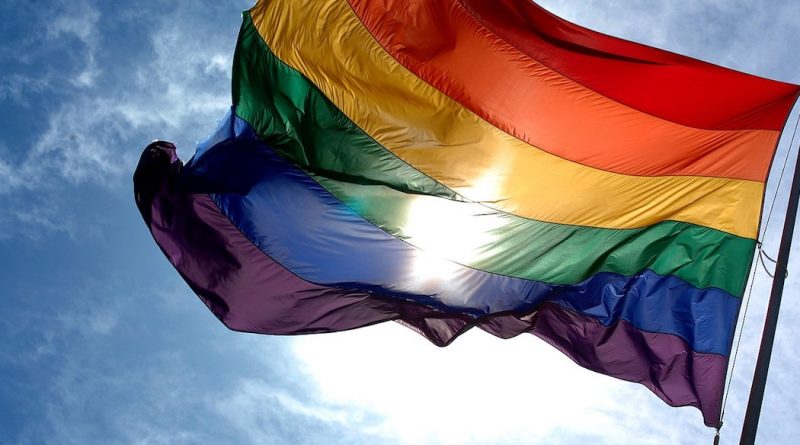Student’s React To Proposed Changes To Federal Definitions Of Sex
Mary McLoughlin
Opinions Editor
The New York Times received a memo drafted by the Trump administration that argues that the federal definition of sex should be changed to a characteristic that is either male or female, unchangeable, and reflective of a person’s genitals. When needed, the memo offers up genetic testing as a way to clarify disputes surrounding sex.
This decision to narrow the definition of sex would have the most significant impact in terms of Title IX protections within educational institutions and federal non-discrimination statutes administered by Obama’s Department of Labor, Equal Opportunity Commission, and Department of Health and Human Services.
Under the Obama administration, the definition of sex expanded to include gender identity beyond the gender assigned to a person at birth. Because of this expansion of the civil liberties granted under Title IX and these under agencies, institutions that receive federal funding—most significantly universities, health services, and housing programs—were mandated to accommodate a person’s gender identity beyond a person’s sex.
The Williams Institute found that 1.4 million Americans identify as transgender. This change in policy would ignore the experience of all of them and violate their civil liberties. It would also affect people who are transgender in the spheres where they are most vulnerable.
The National Center for Transgender Equality estimates that one in five people who are transgender will experience homelessness at one point in their life. Trump’s proposed change in policy would mean that homeless shelters that receiving federal funding would no longer be required to accommodate individuals based on their gender identity.
The American Academy of Pediatrics issued a policy statement that said the best way to treat children who identity as transgender is with a “gender-affirming approach” that recognizes “variations in gender identity and expression are normal aspects of human diversity, and binary definitions of gender do not always reflect emerging gender identities.” Trump’s proposed change in policy could excuse health providers and insurances from providing coverage for gender-affirming care.
GLSEN’s National School Climate survey found that 75% of transgender students feel unsafe at school and 70% avoid using bathrooms throughout the school day. Trump’s proposed change would mean schools are not required to allow children to use facilities in line with their identities.

Trump’s conception of gender that only recognizes the civil liberties of individuals who conform to a rigid sex binary based on genitals is unconscionable. It’s not just the wrong opinion—it’s deluded. The protections granted under the Obama administration that reflect the understanding that gender goes beyond two rigid categories of sex are not just political opinion—they’re a scientific fact.
While the notion of a gender spectrum is often dismissed as a crazy liberal ideology disconnected from the science of biology, the often opposing view reflected in Trump’s proposed changes—of two distinct biological sexes determined by genitalia—is not consistent with our scientific understanding of sex and gender.
The Trump administration’s rigid conception of a binary sexes ignores that there are no two static biological makeups associated with two distinct sexes. The biology of sex goes beyond external genitalia—it encompasses varying hormone levels, chromosomes, differing physical builds. Even people who conventionally conform to male or female vary in their maleness or femaleness.
And then there are people who don’t biologically fit into the categories of male or female. The United Nations coalition for LGBT equality estimates that around 1.7% of people globally are intersex, people with both male or female sex characteristics. The global percentage of people who are intersex is similar to the percentage of people with red hair.
Only recognizing the civil liberties of people who conform to rigid (and largely imaginary) sex categories is not, as the Trump administration articulates it to be, an attempt to clarify protections “on a biological basis that is clear, grounded in science, objective and administrable.”
The act of refusing to listen to and learn from the experience of marginalized Americans reflects the active and subjective choice to reinforce oppressive tradition despite interdisciplinary research in medical, sociological, and education fields that argues that gender affirming approaches make lives better.

Everyone, especially at the University of Dayton, should be outraged. We rally around the concept of community, and we should know that the first step in community is creating spaces for people to exist as they are. Community cannot happen within a nation that attempts to legislate away our diversity.
We cannot be blind to this injustice. Before the end of the year, health and human services will formally present this new definition. Be ready to oppose it.
Look to people who have different experiences from you and listen vulnerably. Let go of any rigid absolutes that order your world because we can only encounter another when we are truly willing to learn from them.
Look for answers beyond this article. Give a platform to the voices of those who are most affected by this issue. Read the kinds of stories you would not be able to tell.
And as much as you look out into the world for better understanding, look back in at yourself and this community. This issue of erasure and marginalization is not a problem impacting faraway people who are different from us when the institutions we uphold are too often the sources of their marginalization.
Body photos courtesy of The Guardian. Featured photo courtesy of Wikipedia Commons.

